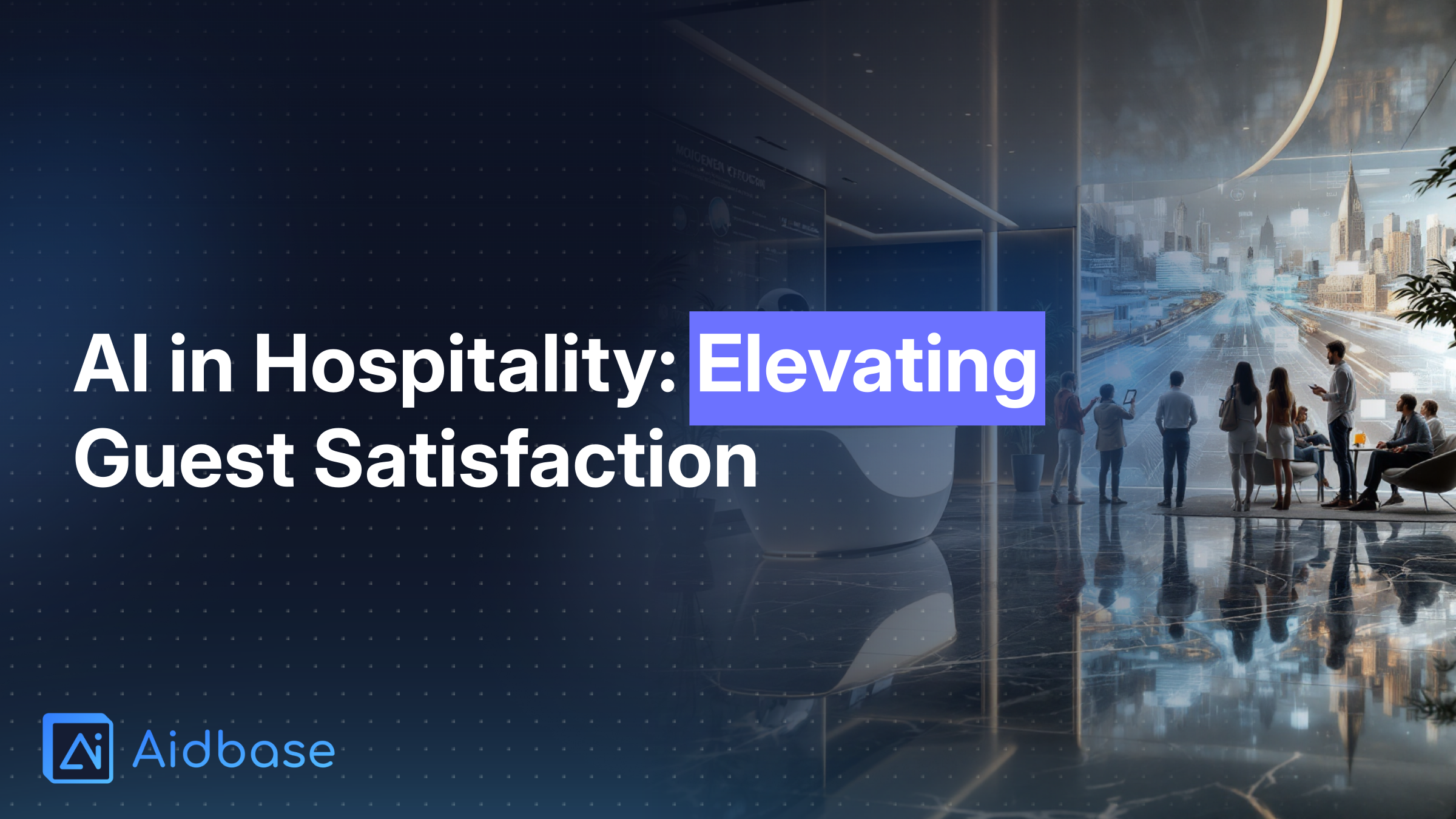The hospitality industry is undergoing a significant transformation through...

In recent years, the hospitality industry has witnessed a remarkable evolution through the integration of artificial intelligence (AI). With the advent of AI-powered tools, hotels and resorts are much better equipped to deliver exceptional guest experiences and streamline operations. This transformation is driven by innovations such as virtual concierges, personalized booking systems, and automated service routines, all of which aim to elevate guest satisfaction while optimizing operational efficiency.
The hospitality sector is rapidly embracing AI to meet the evolving demands of modern travelers. With guests expecting instant responses and highly personalized service, traditional operational models are being overhauled. AI is providing the perfect solution by offering smart, efficient ways to address guest needs. This technological leap not only enhances the guest experience but also frees up staff to focus on more complex, human-centric tasks. Additionally, tools like Aidbase are emerging as essential supports, empowering hospitality professionals with real-time AI insights and applications tailored to enhance customer interactions.
Key points in this transformation include:
AI-powered concierge services have revolutionized guest interactions by providing instant access to hotel information, recommendations, and services without the need for physical front desk interventions. These virtual assistants can be accessed through mobile apps, in-room devices, or chatbots and are available 24/7, meeting diverse guest needs at any hour.
Highlights of AI-driven concierge services include:
A detailed exploration of these benefits is illustrated in an article by ResponseScribe, which emphasizes the revolutionary benefits of virtual concierge services (responsescribe.com).
Personalization is the cornerstone of outstanding hospitality, and AI is the perfect enabler for this transformation. By analyzing guest behavior, preferences, and previous interactions, AI systems create customized experiences that resonate with each visitor.
Notable applications of AI in personalized guest experiences include:
These advancements are supported by insights from ResponseScribe, which highlights how AI can streamline personalized booking interactions and enhance overall guest experiences (responsescribe.com).
The booking process is a critical touchpoint for guest satisfaction. AI has streamlined this process by automating reservations, reducing errors, and speeding up response times, which is essential for meeting the increasingly high expectations of modern travelers.
Insights into automated booking systems reveal:
As reported by ResponseScribe, the move towards automated booking experiences not only improves reliability but also significantly enhances the efficiency of hospitality operations (responsescribe.com).
Beyond guest interactions, AI plays a critical role in the internal operations of hospitality businesses. By automating routine tasks and providing actionable insights through data analytics, AI significantly enhances operational efficiency and revenue management.
Key contributions of AI in operations include:
A comprehensive look at these benefits is provided by HappyFox’s blog, which details how AI-powered systems are not just tools for guest service but also pivotal in streamlining overall operations (blog.happyfox.com).
Real-world examples demonstrate the impact of AI-driven solutions on hospitality. Case studies from leading hotels showcase measurable improvements in both guest satisfaction and operational efficiency due to AI adoption.
Highlights include:
These case studies not only validate the benefits of AI but also serve as inspiration for other hospitality professionals looking to integrate similar technologies. Integrating platforms like Aidbase can provide the necessary analytics and strategic insights to support these successful implementations.
While AI offers immense benefits, hospitality businesses must also consider the challenges associated with its implementation. Understanding these challenges is crucial for ensuring a smooth transition and long-term success.
Key challenges include:
Addressing these considerations thoughtfully will empower hospitality professionals to harness AI effectively while mitigating potential risks.
Looking forward, AI is set to become an even more integral part of the hospitality landscape. Future trends indicate that AI will continue to evolve, offering even more sophisticated solutions to meet guest demands and enhance operational workflows.
Anticipated future developments include:
These trends underscore the need for hospitality professionals to stay informed and agile as they integrate new technologies, ensuring that they remain at the forefront of the industry. Platforms such as Aidbase are poised to support this evolution by providing the intelligence and tools necessary for future readiness.
The integration of AI in hospitality is not just a future vision—it’s a present reality that's reshaping the customer support landscape. By leveraging virtual concierges, personalized booking services, and automated operational systems, hotels are primed to significantly enhance guest satisfaction while optimizing efficiency. As the technology continues to evolve, industry professionals must navigate the challenges and capitalize on the opportunities presented by AI.
For those looking to embark on this transformative journey, the key is to embrace innovation with an eye toward personalizing guest interactions and streamlining operations. By adopting tools like Aidbase and continuously learning from successful case studies, hospitality professionals are well-positioned to lead the way in delivering unforgettable guest experiences in an increasingly competitive marketplace.